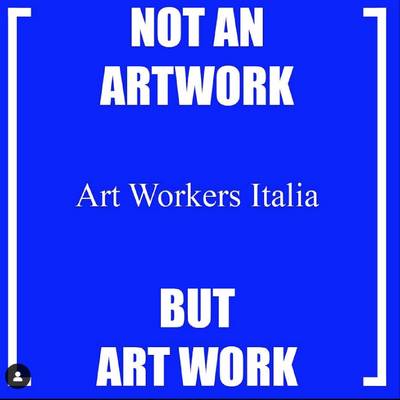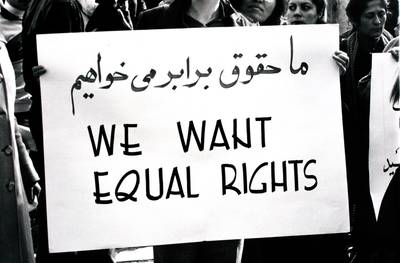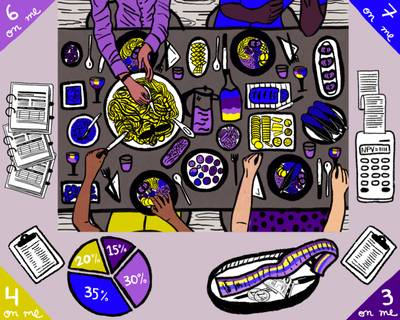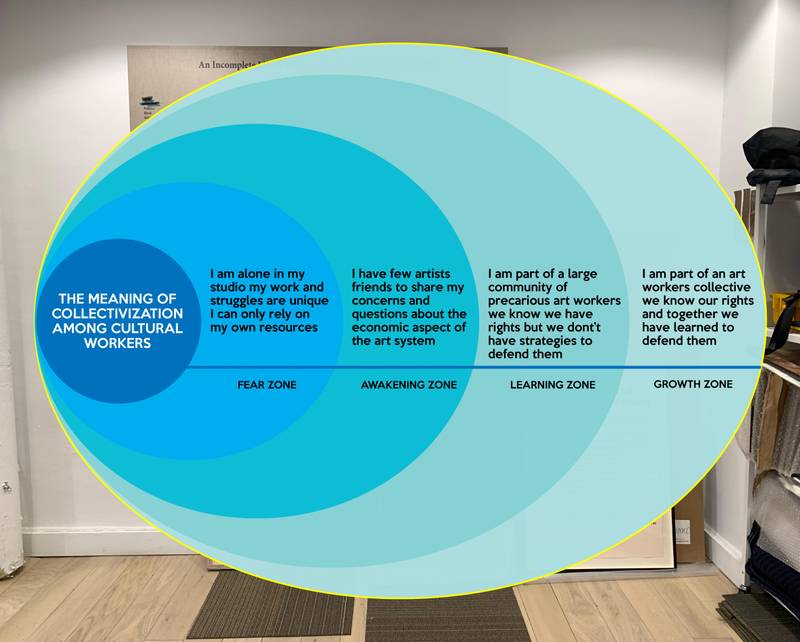

Educational institutions, just like all other institutions, can be considered microcosms of society, where prevailing attitudes and values manifest. Consequently, as racism permeates Finnish society, it also seeps into Finnish daycares.
READMicroaggressions & Everyday Racism in Finland’s Daycare System
Finland is often celebrated for its world-renowned daycare system and commitment to social equality. However, beneath the surface, many non-white families face a disquieting reality: a barrage of microaggressions and everyday racism that challenges the nation’s ideals of equity.


This gives a more exhaustive picture of the Italian context; indeed, if, on the one hand, there is a total lack of rules and government measures to protect cultural work, on the other, many art workers themselves do not have the critical thinking attitude to analyze their own conditions and to claim their rights. The rise of neoliberal logic does not help this lack of political awareness, inasmuch as it fosters competition rather than solidarity and makes people more isolated and vulnerable.
READNo Country for Art Workers
On political imagination and activism as care, according to AWI – Art Workers Italia. How to hack the precariat-based neoliberal system and its ideology of individualisation by embracing an intersectional approach to civil rights and precarious lives.


And isn’t this something that we keep saying, that we are tired of discussing these very rudimentary questions about what is and what isn’t queer? We can go back and forth, we can ask presidential candidates what they think, and we might get some answers, but those answers are really not all that intriguing to us. I think we already know what we are!
READInterior Designs, Drains, Poetic Approaches: An Interview with Artor Jesus Inkerö
On pushing queer agenda forward in some way or bringing something new to it.


Sometimes it feels like the system is designed for you to fail. It seemed that the only way to understand and interact with this system was by gathering as much information as possible from those in similar situations. So our peer group became a place where we could all get together and share our collective knowledge on how to deal with residence permits and other immigration processes as artists, art students, and arts workers.
READA Shared Responsibility: Mutual Support and Allyship Amongst non-eu/eea Art Professionals
A conversation about networks, support, and transnational alliances in the context of hostile policies that non-eu artists and art workers face in Finland and Norway.


The group exhibition Trailblazers: Feminisms, Camera in Hand and Archive over the Shoulder maps out the history of second-wave French feminisms and the interconnected struggles through the founding of the Centre Audiovisuel de Simone de Beauvoir. Curated by Nicole Fernández Ferrer and Nataša Petrešin-Bachelez, the exhibition structures around the archives of the Centre Audiovisuel de Simone de Beauvoir, which are set in dialogue with works and contributions by over 40 artists and collectives.
READMilitant Cameras and Audiovisual Memories: A Review of ‘Trailblazers’
This review looks into the curatorial strategies behind ‘Trailblazers’ and inquires about the potential for a decolonised pantheon of feminist film histories.


The practice of non-binary accounting is not new. Friends who “anexactly” rotate covering tabs for food and drink at bars, who do not keep a precise ledger delineating who owes what to whom, are constantly engaging in small-scale non-binary accounting practices. This text wonders whether a more rigorous formalization of the practice of non-binary accounting that is specifically geared towards subverting and dismantling binary accounting practices could be “scaled up”, so that communities and public institutions “splitting the tab” for large scale social initiatives can transact “anexactly”.
READAccounting Otherwise: Non-Binary Book-Keeping & Fugitive Public Financing
The practice of double-entry or binary accounting presumes and contributes to the systemic reproduction of creditors and debtors, haves and have-nots, privileging the former over the latter. The practice of non-binary accounting might enable us to subvert and dismantle the systems that reproduce such unequal relations.

